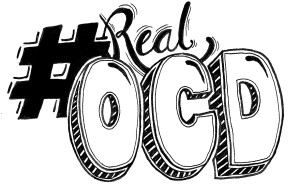BY: MARY WILSON
Opinions Editor
Every year, once students are back in the rhythm of school, skies getting darker sooner and temperatures gradually dropping, it hits. O.C.D. Awareness Week,  held the second week of every October, aims to spread awareness about the debilitating illness. This year, the theme is #RealOCD. Here’s what that means to me.
held the second week of every October, aims to spread awareness about the debilitating illness. This year, the theme is #RealOCD. Here’s what that means to me.
Obsessive-Compulsive Disorder is diagnosed in one in 100 adults and one in 200 children. In order to be clinically diagnosed, individuals must have both obsessions and compulsions, and feel distressed from their symptoms. There are other criteria that an individual must meet to have a diagnosis of O.C.D. In other words, someone who color codes their flashcards for different classes most likely does not have O.C.D.
Obsessive-Compulsive Disorder is disabling. Its symptoms strain family relationships, ruin friendships and can alter the course of an individual’s life. If a person has symptoms for eight hours a day, for example, it’s likely that their quality of life is not what it used to be. O.C.D. is a major cause of disability worldwide, and the World Health Organization (WHO) once ranked it as one of the top ten most debilitating illnesses. Clearly not something to be taken lightly or misunderstood, but it is.
Obsessive-Compulsive Disorder is pervasive. Left untreated, it will spread through every aspect of an individual’s life. In therapy, O.C.D. is often likened to a beast or a monster. Children are encouraged to name their O.C.D., so they can personify it and have an identity for the thing they’re battling. It’s hard for an individual to stay motivated if they believe that all they’re fighting is just a batch of misfiring chemicals. O.C.D. is an intruder, and it will take everything someone loves and holds dear hostage. Depression often goes along with O.C.D., as well as other anxiety disorders.
Obsessive-Compulsive Disorder is terrifying. It is debilitating. It can be life-ruining, but there is hope. Proper treatment, especially early intervention, can make it so O.C.D. does not dictate what a person’s life must be. There are trained professionals, hard to find they may be, who can help a sufferer get their life back. There are support groups, conferences, organizations, websites and books devoted to helping those with O.C.D.
There are millions of people with brains like mine, and we never need to feel alone, regardless of how isolated our illness makes us feel. For help, check out the International OCD Foundation (IOCDF), the National Alliance on Mental Illness (NAMI), or just look it up on Google. O.C.D. is awful, but, speaking in terms of access to treatment and advances in science, there has never been a better time to have the disorder.
As more people go public with their stories of mental illness, stigma is slowly decreasing. Unless someone quite literally lives under a rock, they know someone who has battled mental illness.
We don’t need to be ashamed any longer.











